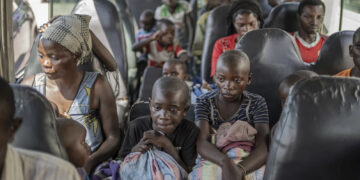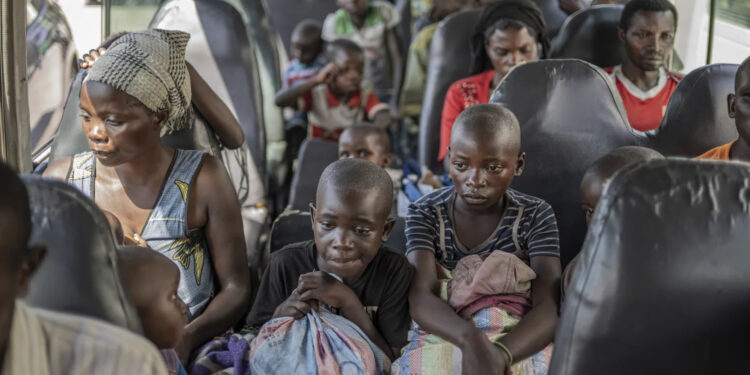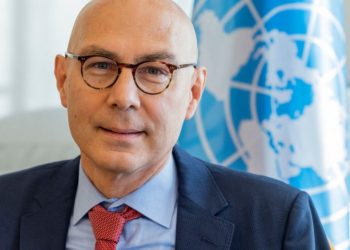Several hundred Rwandan nationals who had been living as refugees in eastern Democratic Republic of Congo since the 1994 genocide crossed back into Rwanda on Saturday, according to the United Nations refugee agency. The return followed territorial gains by rebel forces reportedly supported by Rwanda.
The latest group, made up mostly of women and children, was transported in buses arranged by Rwandan officials. The convoy was accompanied by representatives from the UN Refugee Agency and Save the Children. Local authorities confirmed the movement and said the long-term plan aims to bring back as many as 2,000 people.
“We are happy to welcome our compatriots. They are a valuable workforce for the country’s development,” said Prosper Mulindwa, the Rwandan mayor of Rubavu, during a brief ceremony at the border.
After arrival, the returnees were taken to a temporary shelter where they will be provided with emergency services and guidance to help them reintegrate into Rwandan society.
Those returning are part of the Hutu population that fled Rwanda three decades ago during the genocide that targeted the Tutsi minority and moderate Hutus, leaving up to a million people dead. While many refugees returned after Rwandan forces entered Congo in 1996, some remained. Rwandan officials have said that elements among them later formed militias and joined Congo’s army, continuing to pose a threat to Rwanda’s stability.
Eastern Congo, home to vast mineral wealth, has been mired in conflict for years. Multiple armed factions, including the M23 rebel group, which is believed to receive support from Rwanda, have clashed with government troops, fuelling a prolonged humanitarian emergency.
A report by UN investigators states that Rwanda is backing the rebels with around 4,000 troops, further complicating regional tensions.
Among those returning, many spoke about lives shaped by displacement and a yearning for home, even for those born in exile.
Nyirakajumba Twizere, who was born in Congo in 1996 and had never set foot in Rwanda, shared his feelings. “I never thought this day would come,” he said. “I’m finally going back to the land of my ancestors.”
The current repatriation effort is grounded in a longstanding arrangement signed by Rwanda, Congo and the UN refugee agency. Officials in Kigali say over 101,000 refugees have returned to Rwanda under the agreement, including 1,500 who have come back so far in 2025.



































